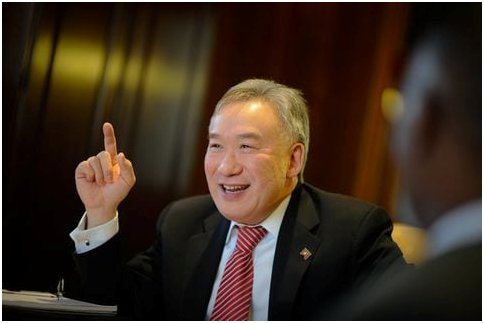Allen Y. Lew

Story Posted By:
Relationship to the deceased:
Allen Y. Lew was a city-planning executive who built a generation of Washington landmarks with a speed that countered the District government’s reputation for corruption and incompetence. Working for three D.C. mayors, he blasted through bureaucracies to build the city’s premier convention center and Nationals Park. He also rehabbed more than 30 District schools, demanding authority to hire top-shelf contractors to do the work. “People in government aren’t used to this," he said, “but you pay for performance.”
A sneak peek under the witness table revealed Lew, in between answers, furiously tapping his Blackberry, getting things done.
After the hearing, Lew mock-begged that NBC4 not use the video we had recorded of his subterfuge. But Lew couldn’t help but smile at his school boy-like success in making better use of his time.
That moment encapsulates the life of Allen Y. Lew, who died Tuesday morning of complications from COVID-19 at the age of 69.
He was not a man for endless process. His small-statured body literally wiggled with impatience in hearing rooms, waiting for elevators, or marching down long Wilson Building hallways to yet another meeting. “I don’t think networking, backslapping was his strong suit,” says local lawyer and lobbyist Claude E. Bailey. “He pretty much focused on what he had to do and did it.” Bailey was hired in the late 1990s as general counsel to the Washington Convention Authority just as Lew was hired from New York as director of development. They were to guide the construction of the new convention center that opened in 2003. “I helped him navigate D.C. politics, he didn’t know anyone,” Bailey says.
But Lew knew buildings. A graduate of the City College of New York’s architecture school with a master’s degree in urban design and architecture from Columbia University, Lew began his perpetual motion through the District with the construction of the Walter W. Washington Convention Center before leading the renovation of RFK Stadium for the Washington Nationals’ opening season in 2005, overseeing the new Nationals Park in Southeast and billions of dollars of school renovations, and landing the deal to build the new soccer stadium. All of the projects were delivered on time, though not always on budget. “If bureaucracy speed was worth a lot,” recalls Ward 3 Councilmember Mary Cheh, “we saved money” even when Lew was over budget. Cheh tousled with Lew over the costly Wilson High School renovation and other matters but considered him a friend. “I enjoyed working with him. He had an elf-like smile when he would say,’ No, Mary, you can’t do that.’”
Cheh says Lew was “never salty” around her, but others say Lew could be very blue when he wanted, and to great effect. Bailey, who is Black, says one of Lew’s great strengths was his ability to work with (and curse out) contractors of all sorts, regardless of race or political connections. “His teams were very diverse, African American architects, engineering firms, staff … Once he gave you a job to do, he pretty much left you alone,” Bailey says, unless you faltered. “He cussed me a couple of times.”
Former Ward 2 Councilmember Jack Evans, who chaired the finance and revenue committee for 20 years, helped oversee all of the projects Lew carried out. Evans says Lew was the embodiment of what the District has become since its near-bankruptcy in the early 1990s.
“As I always say,” Evans recounts, “without the convention center, the arena, the Nats ballpark, the billions in school renovations, the renovation of downtown, we would be Detroit. Mayor Muriel Bowser paid homage to Lew and his handprint on our city. “So much of what we enjoy in our city today,” she says, “is the result of Allen’s ability to bring people together and get the work done.”
